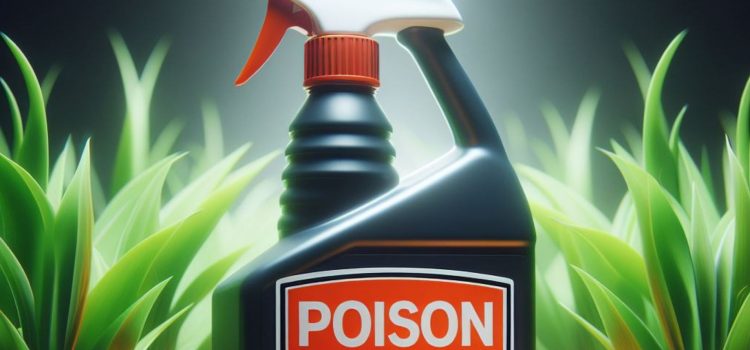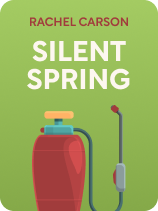
What’s the current status of pesticide regulation? Why was the public unaware of the dangers of pesticides in the 20th century?
Rachel Carson’s groundbreaking book Silent Spring influenced governments to take a closer look at the chemical makeup of pesticides. Even though pesticide spraying is still controversial today, there’s no doubt her book made a difference in the environmental community.
Keep reading to learn how public and government opinions on pesticides have changed.
Public Ignorance About Pesticides
Carson argues that people are vulnerable to pesticides not just because the chemicals are dangerous but also because chemical companies and governments have done little to educate the public about the danger. Studies have shown that most Americans are ignorant of pesticides’ ability to poison or cause disease, even as they use them in their homes and gardens—resulting in hospitalizations when people inadvertently contaminate their own water supply or fill an enclosed room with deadly chemicals. Local agriculture departments often downplay or outright lie about the dangers of spraying campaigns carried out over residential areas, and some have been sued after the fact by farmers whose product was destroyed.
(Shortform note: Such lawsuits continue to this day, though they tend to target private chemical companies who sell pesticides for personal or commercial use rather than government agencies. That said, the EPA—established in 1970 in part to regulate pesticides and protect public health—has also been sued several times over claims that it failed to restrict the sale of harmful chemicals. As of the 2020s, the EPA is working to speed up its evaluation process to more quickly ban potentially dangerous herbicides. Public education about the dangers of pesticides has improved since Carson’s day, in part due to EPA-sponsored initiatives like university Pesticide Safety Education Programs and National Pesticide Safety Education Month.)
Since chemical companies have no incentive to warn about the dangers of their products, Carson believes that the best solution is more pesticide regulation and government oversight. The Food and Drug Administration is intended to protect public health by regulating commercial products, but their ability to control the spread of pesticides is limited by the small number of employees and the fact that many sprays are permitted to go to market even as they’re still being tested for carcinogenic or otherwise harmful effects. Carson argues that the department’s reach should be expanded, including allowing it to ban some pesticides outright, and that the federal government should do more to educate people about the uses and dangers of pesticides.
| Government Regulation Under the EPA Carson herself worked for a government regulatory agency under the US Fish and Wildlife Service, which is housed in the Department of the Interior and responsible for enforcing federal laws protecting wildlife and conserving wildlife habitats across the US. When the EPA was founded in 1970—arguably as a direct result of Silent Spring and the growing environmentalist movement—it took over several duties that had previously been shared by the Department of the Interior, the Department of Agriculture, and the Food and Drug Administration, including the regulation of pesticides and pollution control programs. A series of environmental protection laws passed in the ’70s would expand the reach of the EPA, including revisions to the 1963 Clean Air Act (which allowed the EPA to regulate vehicle emissions), revisions to the 1947 Federal Insecticide, Fungicide, and Rodenticide Act (regulation of the manufacture and sale of pesticides), the 1974 Safe Drinking Water Act (regulation of water quality standards), and the 1976 Resource Conservation and Recovery Act (regulation of waste disposal). The powers of the Fish and Wildlife Services were also expanded with the 1973 Endangered Species Act. |

———End of Preview———
Like what you just read? Read the rest of the world's best book summary and analysis of Rachel Carson's "Silent Spring" at Shortform.
Here's what you'll find in our full Silent Spring summary:
- How pesticides threaten to devastate the environment and poison humans
- Why there should be stricter regulation of pesticides in the US
- How this 1962 book inspired the environmentalist movement of the 70s






